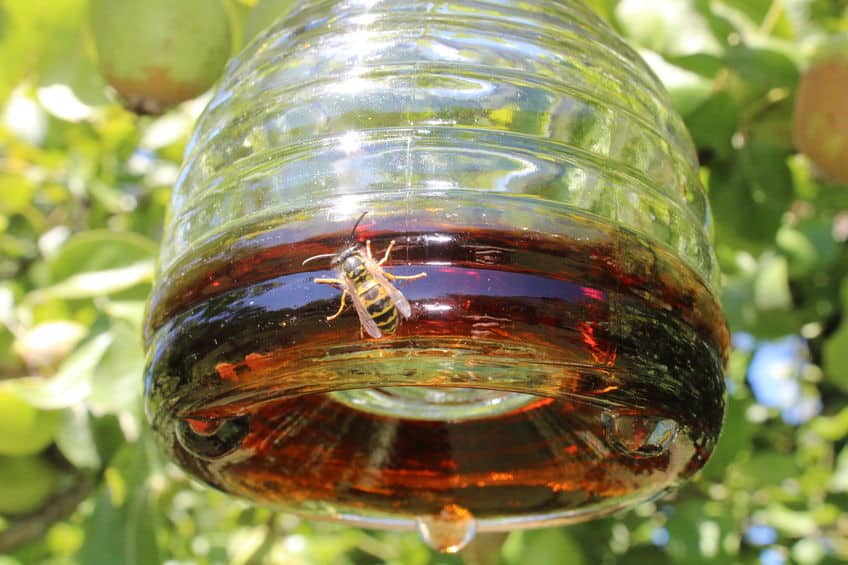Barbeques and cookouts are a must when it comes to summer, but many soon find that wasps are often hovering over food and drinks too. While wasps can be aggressive and painful to deal with, bees are typically docile in comparison. Can wasp traps harm bees too?
Not all wasp traps can harm bees. Try mixing fruit, water, and dish soap to drown wasps while leaving bees unharmed. You also want to ensure to set your traps in early spring. There are also non-trapping ways to remove wasps without harming bees, such as heptyl butyrate traps.
Let’s take a closer look at wasp traps that aren’t harmful to bees.
What Is the Best Wasp Trap?
When it comes to trapping a wasp, you want to have the best, but you want to make sure it doesn’t harm other insects. Many people worry that bees will fall prey to traps set for wasps. Luckily, there is an easy way to avoid this.
Bees aren’t attracted to all the same food types as wasps. Bees will stick to flowers and other pollen-producing plants. They will rarely be attracted to your beer and burgers.

Place a Beer or Fruit and Water Trap
Wasps are attracted to your family cookouts and summer barbecues because they love the food as much as you do. Wasps are searching for food to bring back to the nest for their young. This means they’re on the hunt for protein, and they get that from similar places that we do.
One of the most successful traps for wasps is a beer or fruit mixed with water and dish soap trap. They are easy to set up, and they aren’t harmful to bees. There are plenty of traps available online, but you can also make one yourself:
- Take a 2-liter plastic bottle and remove the lid.
- Cut the bottle in half, fill the bottom half with a little bit of water and your choice of fruit or beer.
- Squeeze in a little dish soap and place the top half upside down into the bottle so that the bottle opening is inside the bottom half.
- Tape the top-down and place the trap somewhere in your yard.
The beer or fruit will attract the wasps into the trap, and the dish soap makes it difficult for them to tread water. If you don’t have beer or fruit handy, you can also use vinegar. The wasps ending up in the trap will sink to the bottom and drown, but the smells in these traps won’t tempt bees.
Use a Heptyl Butyrate
Heptyl Butyrate naturally attracts wasps without gaining the attention of nearby bees. You can buy it in a liquid form or purchase traps that use the chemical. One of the main benefits of using this ingredient is it’s non-toxic. Unlike countless wasp sprays, you won’t have to wear a mask and gloves when installing these traps.
If you use Heptyl Butyrate, it won’t attract bees. Fort Collins Nursery suggests you can use this ingredient, also known as C11H22O2, indoors or outdoors. It’s a primary additive in many wasp preventatives because it traps and dehydrates them.
Summary
Bees and wasps are often lumped together in the same category. Usually, the best ways to get rid of wasps aren’t at all harmful to bees. There are plenty of wasp traps that won’t harm the bees in your area.
